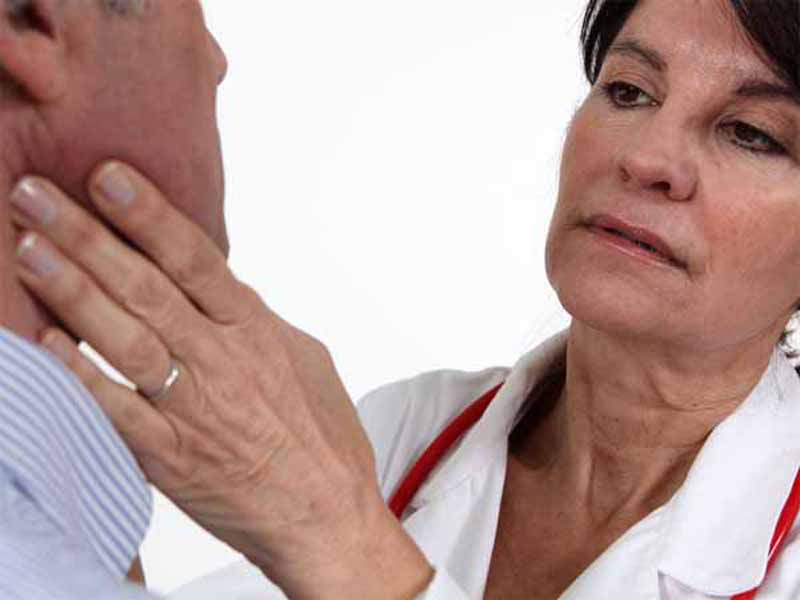Value of Physical Exam Is Far More Than Meets the Eye
Study Finds FPs, Patients Both Benefit From the Experience
August 05, 2019 12:31 pm News Staff – Although the physical examination has been central to the relationship between physician and patient for millennia, its usefulness has, like many other aspects of medical practice, come under scrutiny in recent years. Technological advances have raised skepticism about its role in patient care, while evidence suggests that residents and new physicians in some specialties may be less adept at performing physical examinations than their predecessors.
Physical examination remains a hallmark of family medicine, however. Now, a new study published in the July/August issue of Annals of Family Medicine reinforces that fact, finding that many FPs identify strongly with the physical exam and say that it has objective and subjective value in patient care.
Study Design
The researchers initially identified a convenience sample from family medicine faculty lists at the University of Calgary in Alberta, Canada, later expanding recruitment to others recommended by those first participants. The researchers interviewed interested participants in person or by telephone, beginning each interview by asking the participant to describe an actual physical examination experience they could recall in detail and then following up with a series of prompts that provided additional information.

A total of 16 practicing family physicians participated in the research. Nine FPs were women, and 11 worked in urban practices. Half of the FPs had been in practice for 20 years or longer.
Findings
Not surprisingly, the physical examination meant different things to different FPs.
Some participants considered the physical examination to be the embodiment of what it meant to be a family physician. One female FP who had been in practice in an urban setting for more than 20 years remarked that any physician who did not physically examine patients was not, in her opinion, a good physician. She contended that the examination was "about connection and relationship and if you don't have that, I don't care how good a doctor you are, you are not a good doctor. … (It's) specific to being a physician. So that part is special. That's mine."
Story Highlights
Many FPs said they used the examination objectively to confirm or disprove a hypothesis they formed after taking a history.
"I use physical exam to confirm what I'm looking for in the history, rule out what I'm looking to rule out," said another female FP, who also had practiced in an urban setting for more than 20 years. "Rarely is there an absolute surprise, but I don't want to miss it."
A male FP who had practiced locum tenens for fewer than five years in an urban setting reported that, for him, making an unexpected finding during a routine physical exam served to reinforce the habit of physically examining every patient.
"I find something completely new or unrelated that I might not have seen, you know, there's a reason we call them incidentalomas, so I think it's always worth doing that exam," he said.
Other FPs reported a subjective benefit to the physical examination. Although it might not always be clinically necessary, there often was an expectation to perform a physical exam and doing so helped to build and strengthen relationships between FPs and their patients.
One female FP with more than 20 years of experience in an urban practice described how the physical exam strengthened her bond with patients. "I think you do make a connection … (so) that pretty well no amount of talking even with the best communication skills quite equals what that means to people," she said. "I think it is a huge part of it for both sides. If you didn't do that, then you're a technician … we're not a physician anymore. We're healers … and part of that is making a connection, and an ultrasound machine is not a connection."
The same FP also related how the physical examination affected her personally by recalling her thoughts and emotions during a situation in which she was unable to detect the heartbeat of a fetus.
"Is it my technique? Am I just missing it? Is the machine not going well, or do we really have a problem here?" she remembered thinking. "Trying to manage that 20 to probably 60 seconds of just awful anxiety without really deciding how much you're relaying to the patient during that time frame … . There's just numerous things there … we're generally … unaware of … that suddenly become of absolute ultimate importance."
Another FP (one of the female urban physicians quoted above) recalled being struck by the appearance of a sick baby.
"You walk into a room, and you look at the kid and you go oops, and your stomach knots -- that child is sick," she said. "All you have done is look at them, but you know that baby is not well. You get that urgent feeling in your body, telling yourself to breathe, tell me your story, breathe, give me that baby. I want to look at that baby."
Conclusions
Overall, participating FPs found the physical examination to be valuable in a number of ways. Objectively, it helped them confirm or rule out certain diagnoses and revealed findings that might otherwise have been missed. Subjectively, it established and strengthened relationships between FPs and their patients in ways that could not have been achieved verbally.
"While acknowledging the advantages technology offers, we should not dismiss physical examination as nostalgia," the authors stated. "Rather, it combines the science and art of clinical practice and is an important way of knowing.
"It is a form of nonverbal communication within doctor-patient relationships that promotes rapport and trust," they concluded. "It brings forth various dimensions of our humanity as family physicians."